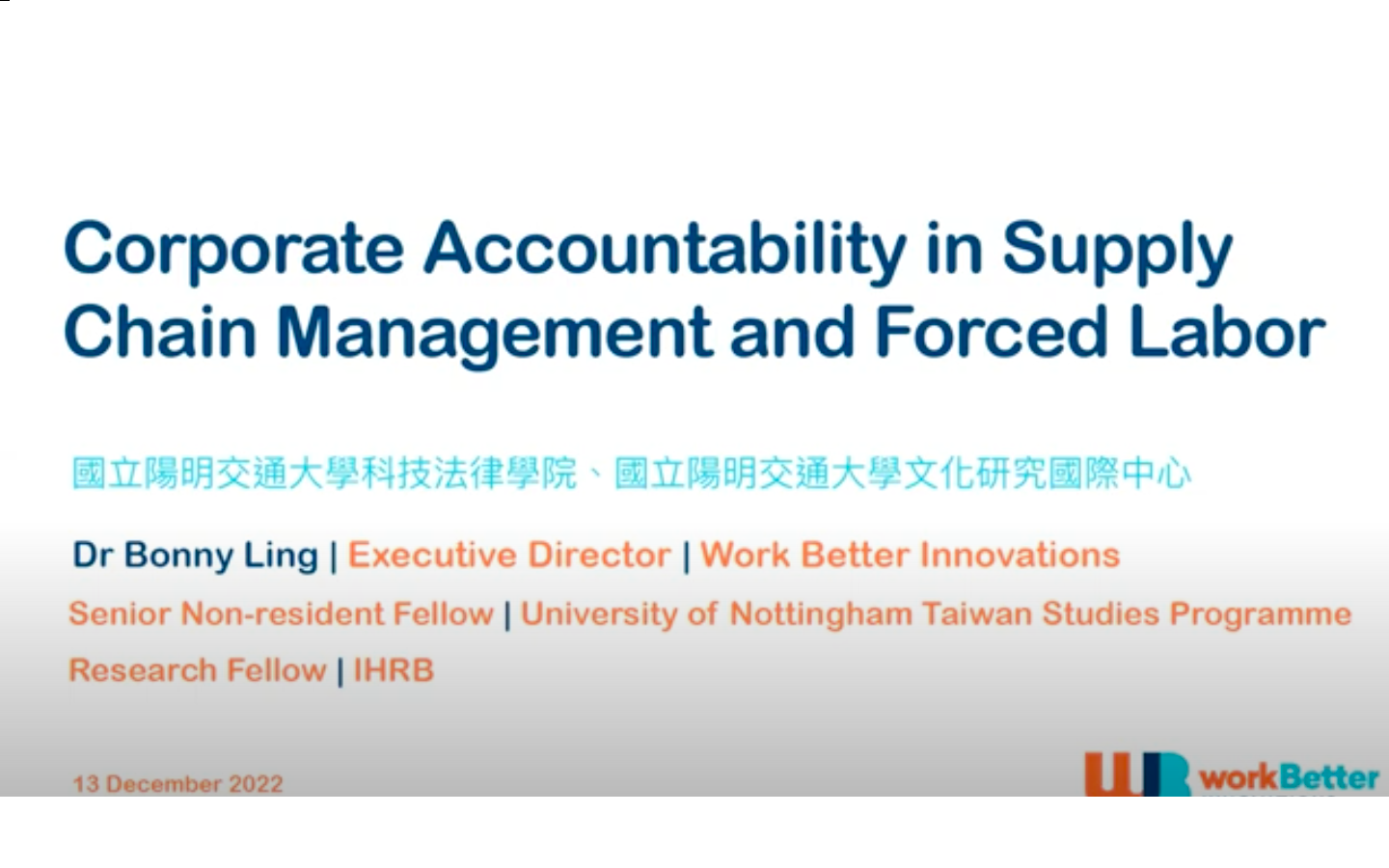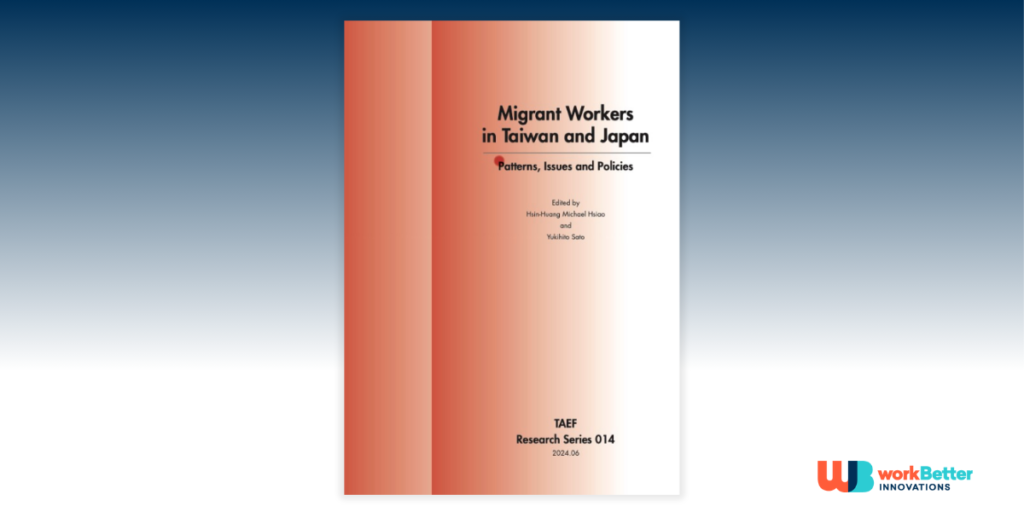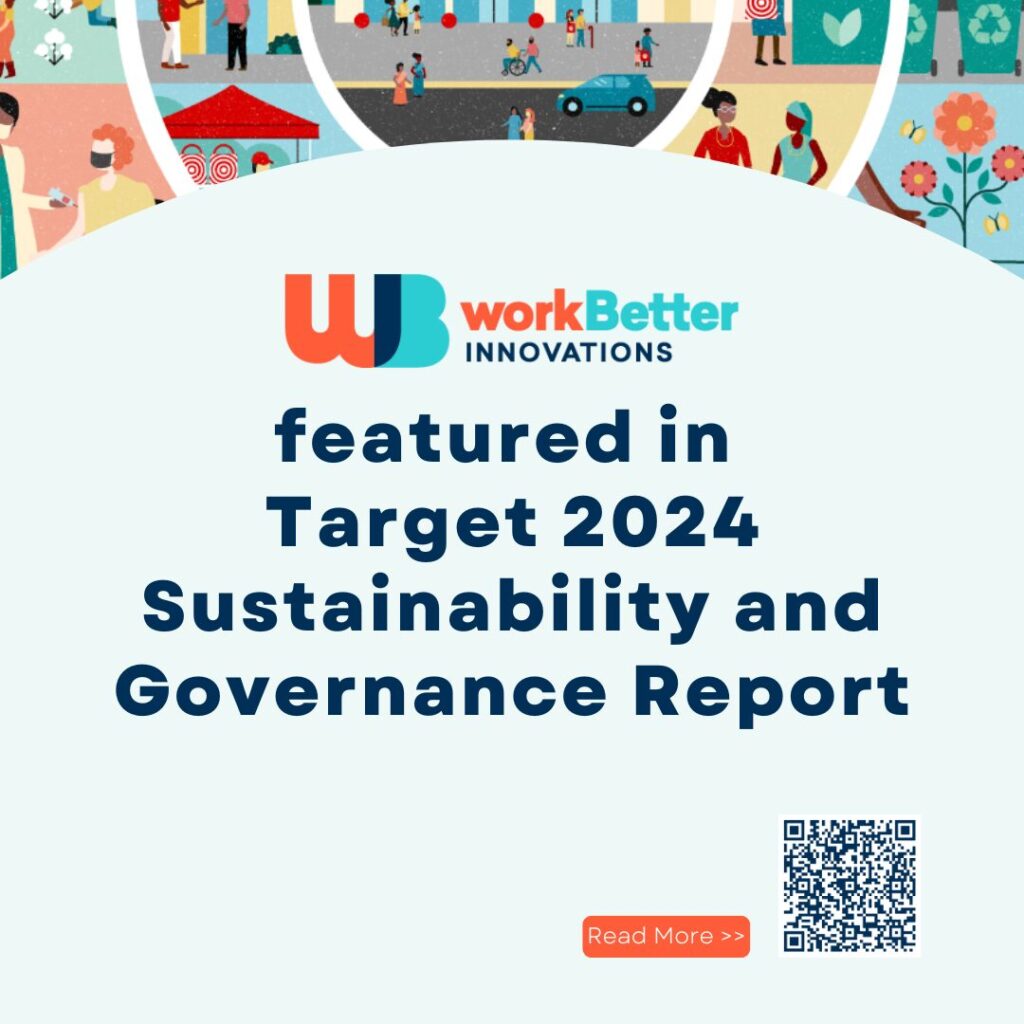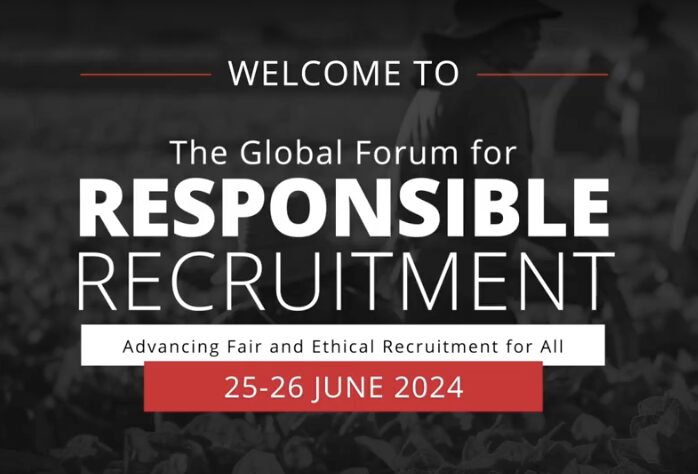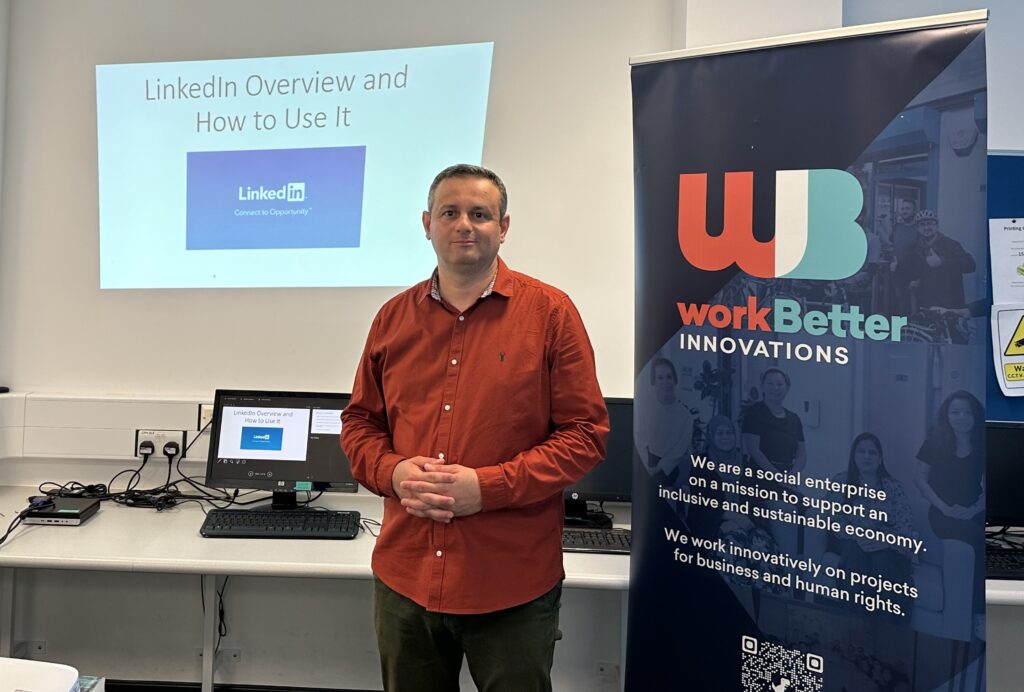10 January 2023. Looking back on Dr Bonny Ling’s public lecture in Taiwan on 13th December, as part of a series of talks and workshops centred on the issue of forced labour in the Taiwanese supply chain.
In December 2022, WBI Executive Director Dr Bonny Ling delivered a public lecture, “Corporate Accountability in Supply Chain Management and Forced Labor” at the National Yang Ming Chiao Tung University (NYCU) in Hsinchu, Taiwan.
Dr Ling was joined by Professor Carol Lin from the School of Law and Secretary-General Yi-Hsiang Shih of the Taiwan Association for Human Rights. The event was moderated by Profs. Joyce C.H. Liu and Yu-Fan Chiufrom NYCU International Centre of Cultural Studies and the School of Law that jointly hosted the event.
A recording of the event (in Chinese) is available below, along with a Chinese summary of the event, written by Chang Wen-Chi, Master of Law student at NYCU.
[YouTube recording of the entire lecture at the NYCU International Centre of Cultural Studies]
Coinciding with the release of the Practical Guide on Forced Labour Indicators for SMEs in Taiwan, the lecture spoke of the urgency to address the issue of forced labour.
The importance of corporate responsibility to respect human rights in supply chain management for preventing human rights violations and the issue of forced labour was a central point of the discussion.

[Printed copies of the Practical Guide on Forced Labour Indicators for SMEs in Taiwan, published by WBI and educational materials produced by the Institute for Human Rights and Business on the issue of debt bondage and labour recruitment.]
Using the example of the coffee supply chain, Dr Ling opened the talk. Understanding the full negative environmental impacts and labour abuses in getting coffee harvested, transported and delivered to consumers in a cup shows how complex the issue is.
Supply chain mapping is therefore crucial for human rights due diligence, but both concepts lack proper guidance in Taiwan’s current version of its National Action Plan on Business and Human Rights.
Furthermore, despite laws that clearly make the practice of forced and compulsory labour illegal in jurisdictions across the world, the practice persists, especially as it intersects with the employment situation of migrant workers.
An increase in human rights literacy supplemented with clear and easy-to-understand instruction manuals such as the one we recently produced on forced labour prevention can target this gap in implementation.

[Dr Ling addressing the audience during her public talk on corporate accountability and forced labour]
The second half of Dr Ling’s lecture focused on migrant abuses and risks of forced labour, examining the scale of the forced labour challenge and the sectors of highest risks in Taiwan.
She spoke on the importance of the Employer Pays Principle, where migrant workers do not bear the recruitment costs for their jobs. Such costs should be borne by the employers under international labour standards.
To emphasise the scale of the challenge ahead to eliminate forced labour, this public talk is the first in a wide breadth of programming in the coming years by WBI and the NYCU on business and human rights in Taiwan and in the Asia-Pacific,
We will start with a fully-credited, three-month academic course titled “Corporate responsibility and International Human Rights in Supply Chains”, co-taught by Bonny and Prof. Chiu, to start in February 2023, online at NYCU.

[To start in February 2023, a semester class on “Corporate Responsibility and International Human Rights in Supply Chains” taught by Dr. Bonny Ling and Prof. Yu-Fan Chiu, at the School of Law, National Yang Ming Chiao Tung University in Hsinchu, Taiwan. Please write miranda [at] nycu.edu.tw for registration info]

